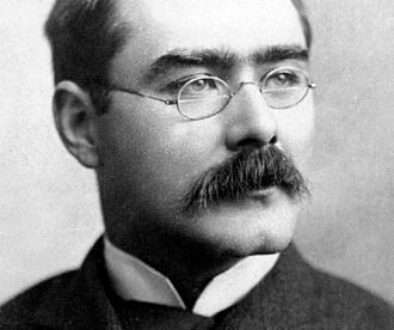Joy – What It Means and How to Find It
Menanteau Serfontein – 22 July 2021
“We cannot cure the world of its sorrows, but we can choose to live in joy.” – Joseph Campbell
“If you carry joy in your heart, you can heal any moment.” – Carlos Santana
There is often confusion about the difference between “Happiness” and “Joy”.
“Happiness,” is the sense of contentment and satisfaction that we generally feel about our lives, usually based on how we feel about external circumstances such as our work, family life, health, etc.
“Joy” is something deeper than just the result of happy circumstances. Joy is a delight, a jubilation of what we experience in our inner being not as a result of external factors and circumstances, but by the extent of our spiritual wellbeing. God is the source of our inner joy, irrespective of our circumstances. Joy is vital to our human existence and wellbeing and a foundational element of a high quality of life. Joy is a capacity that, though not exclusive to faith, is enhanced by faith.
Poets, bards and saints in every culture and religion in human history have regarded joy as essential to human life and well-being. Yet joy is increasingly absent in contemporary culture, replaced in the academic lexicon and in common parlance by the more general concept of happiness. (The Journal of Positive Psychology)
Joy is found in something larger and beyond ourselves. It is a spiritual gift that we can lay hold of and live out, irrespective whether or not our outer conditions are as favourable as we would like them to be. Galations 5:22-23 states “ …. the fruit of the Spirit is love, joy, peace, patience, kindness, goodness, faithfulness, gentleness and self-control ….” Our spiritual joy can in fact play a key role in helping us to make the most difficult situations bearable. As Nehemiah said, “The joy of the Lord is your strength” (Nehemia. 8:10), because joy in our inward being irresistibly calls forth joy in the outer world. Ultimately, joy cannot be taught by means of a textbook. Joy is something that must be experienced and once we understand how it can be experienced, we can develop the capacity to become increasingly more joyful.
Joy has a positive influence in any situation, and there are many ways in which we can express joy—with thankfulness, encouraging words, kindness, positive thoughts, gentleness, a smile, speaking hope and life. We should not wait for circumstances to bring us joy; we must actively allow our inner spiritual wellspring of joy to act upon circumstances.
The negative feelings of despair, despondency, disappointment, worry, anger, bitterness, unforgiveness, abandonment and fear can be overcome by the power of joy. Some overcomings take longer than others, but even if we are dealing with problems and issues of long standing, that is no reason to despair or to give up hope of solving or overcoming them.
But how do we cultivate joy in the heart and more joy in our lives? We must lay hold of joy, and let it well up from within us through thought, word, and action. Firstly, we must realize that God, through his spirit, is the only source of true and lasting joy. People and things and situations are wonderful when all is well, but since they may change, we must not place our spiritual and emotional dependence on them. Secondly, we must depend on the source which cannot change and from which all good flows. We must actively seek and allow the presence of God’s spirit to fill us and to overflow to others.
When we realize that God is for us, with us and in us, we are enabled to conduct our work and deal with our problems and challenges with joy.
We should also choose to make an effort to cultivate an increase in joy. We should try our best to stop turning our attention too far inward on our own personal universe and its problems. Instead, we can deliberately turn outward, to consider others and what we can do for them. When we can bring joy to others, we always find joy ourselves.
Our relationships with people can contribute to our joy, but it can also be a joy killer, depending on how we choose to conduct our relationships. Do we have a critical spirit, are we judgemental, do we harbour bitterness and unforgiveness? If so, it will negatively affect our relationships and it will have a detrimental impact on our personal joy and peace. We should choose to think about and treat people with respect, honour, dignity and high esteem, regardless of who they are. Don’t look for perfection – celebrate their strengths and don’t emphasize their weaknesses. Donald “Don” Miller, author, public speaker and business owner says “When you stop expecting people to be perfect, you can like them for who they are.” This approach will have a substantial positive impact on your relationships.
In addition to relationships, it is possible to also find joy in your work by choosing a joyful disposition towards it and identifying a meaningful purpose in the work that you do.
Avoid seeking joy in the wrong areas, for example worshipping idols such as your career, fame, money, your home etc. There might be fleeting moments of joy in these things, but it never truly satisfies and never renders genuine lasting inner joy.
Another way in which we can increase joy in our hearts is by counting our blessings and giving thanks for them. If we appreciate the smallest blessing that comes to us or that has always been with us, and take nothing for granted, we find that we are living in a constant state of joy. When we speak, think, and act with joy, there is little room for anything else in our lives.
“Let your joy be in your journey—not in some distant goal.” — Tim Cook
Sources:
- Article authored by Thomas N. Hopper entitled “The Power of Joy” contained in unity.org
- Article contained in The Journal of Positive Psychology Volume 15 2020 entitled “Joy: An introduction to this special issue”






